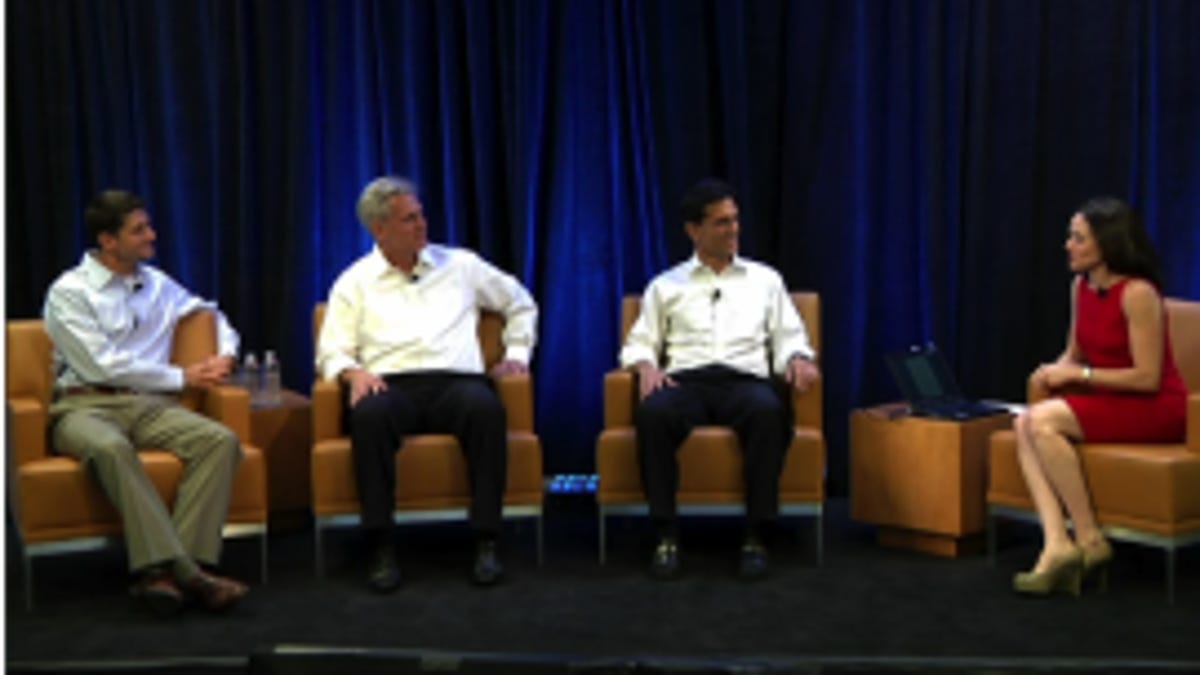Paul Ryan's sparse, mixed record on technology
Mitt Romney's running mate isn't a leader on technology topics in the U.S. Congress -- he's been focused on fiscal matters. But what we do know indicates a mixed record.

Rep. Paul Ryan, the new Republican pick as vice presidential nominee, has not been a leader on technology topics and has a mixed tech voting record in this area.
This should be no surprise. If you're in the U.S. Congress, you're not likely to focus on technology unless you're a member of the relevant committees. Ryan isn't. Instead, he's the chairman of the House Budget committee and has spent years trying to get entitlements under control.
So far, though, Ryan's voting history indicates that he tends to align himself with the Republicans' party line on tech topics. He's voted:
• Against Internet taxes (HR 3916)
• For the Real ID Act, which would have created a national identity card with "common machine-readable technology." (HR 418)
• Against Internet gambling (HR 3125)
• For the Deleting Online Predators Act, which would have made social networks off-limits from computers at many U.S. schools and libraries. (HR 5319)
• For retroactive immunity for AT&T and other telecommunications companies accused of illegally opening their networks to the National Security Agency. (HR 6304)
• Against requiring a report to Congress on the use of data-mining technology by government agencies. (HR 3199)
To be sure, Ryan and other top congressional Republicans did show up at Facebook in September 2011 as part of a Bay Area tour. He voted for the Fairness for High Skilled Immigrants Act and Jumpstart Our Business Startups bills, both of which were backed by Silicon Valley. (The JOBS bill became law in April.)
And Ryan did publicly oppose the controversial Stop Online Piracy Act, which would have granted the feds the ability to deliver an Internet death penalty to allegedly piratical Web sites. That came after a Reddit.com campaign targeting him -- even though Ryan was never a sponsor of the bill.
On the other hand, Ryan did vote for the Cyber Intelligence Sharing and Protection Act. CISPA, a Republican priority, is potentially privacy-invading legislation that invites companies to open their databases to the federal government.
CISPA would "waive every single privacy law ever enacted in the name of cybersecurity," Rep. Jared Polis, a Colorado Democrat and onetime Web entrepreneur, said during the floor debate in April. "Allowing the military and NSA to spy on Americans on American soil goes against every principle this country was founded on."
Whatever Ryan's possible tech missteps, he nevertheless enjoys a better record in this area than Joe Biden did four years ago had when then-Sen. Barack Obama selected him to be his running mate.
Biden had spent most of his Senate career allied with the FBI and copyright holders, and had, in the 1990s, introduced anti-privacy legislation that spurred Phil Zimmermann to create and release his Pretty Good Privacy (PGP) encryption software.

